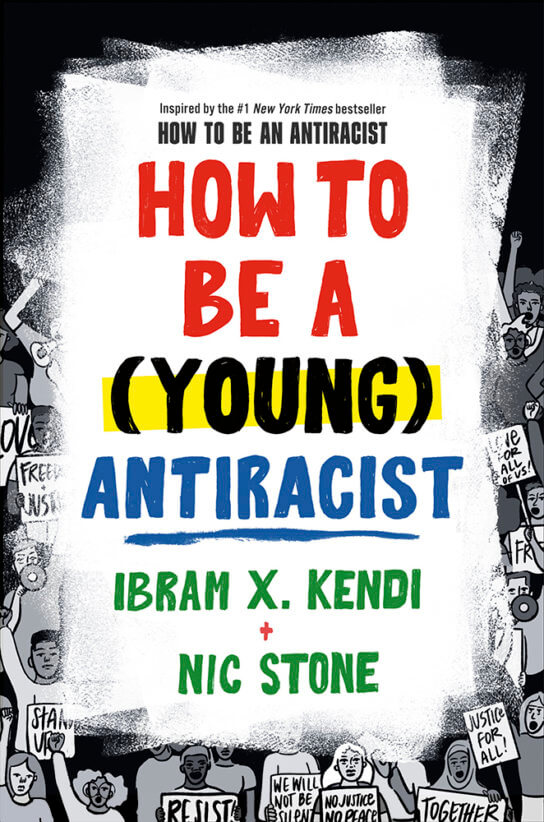
Raising Antiracist Children: An Expert Weighs In
When raising children, the goal is always to prepare them for the world as much as possible. This includes teaching them to be inclusive of everyone they meet. The best way to do this is to raise children with antiracist ideals.
Studies have shown that children can internalize racial bias as early as two years old, so talking to children about race early on is incredibly important.
We connected with Nic Stone, co-author of How to Be a (Young) Antiracist, and asked her about what parents can do to incorporate antiracist ideals into their parenting and work towards raising antiracist children.
Raising antiracist children starts with the parents. Many people carry unconscious bias, and a lot of people are afraid to admit or confront that. How can people, especially parents, confront their unconscious biases?
It definitely starts with first admitting that you have unconscious biases, and then recognizing that they aren’t your fault, nor do they make you a horrible person. Frequently—and I say this as a parent—I find that we try to mold our children from a place of fear that they will be socially unacceptable, and that we will be considered socially unacceptable based on our rearing of our children. But if this is our basis for decision-making regarding our children, we’ll forever be pulled to and fro by the fickle nature of social norms. Recognizing that we are products of the environments we’ve spent most of our time in and then unpacking our biases from that space of understanding is paramount if we truly want to raise children who view all people equally valuable and valid in all of our differences.
Many parents might want to shield their children from topics like racism for as long as possible. What are your thoughts on this? How can parents approach the topic of racism with their children?
While I certainly understand and have lived this inclination, a moment in the car with my children helped me to see how improbable the notion of “shielding” our children truly is: they were discussing death—as children do—and the younger one suggested that the older one would be the first to die, to which the older one responded, “You don’t know that. You might get shot.” This was on the heels of the tragedy in Uvalde, TX. A tragedy my children knew about because it had been discussed in both of their schools because said schools were revamping safety protocols. I personally don’t think we help our children by keeping the truth of the world from them. And though it’s uncomfortable, the sooner they get a passing understanding of basic things like racism (it’s too embedded in the foundations of literally every colonized nation to not be considered a base level concept), the sooner they will see how ridiculous it all is and the better equipped they’ll be to combat it. We only have to empower them to do so.
What can parents do to foster an antiracist environment in their home?
I think exposure to as many stories about different people from different places is the foundation. People frequently maintain racist ideas because they haven’t truly been exposed to any stories or information that counters those ideas. Diverse and inclusive stories show children that ALL people from ALL backgrounds—and this is across race, gender, class, orientation, color, ethnicity, faith, body, and ability—can do amazing, powerful, and heroic things and that ALL cultures are equally valid.
For teens and young adults who want to start on the journey towards antiracism, where or how should they start?
You must start within. Unpacking one’s own biases and recognizing all of the skewed ways we’ve been conditioned to view the world and other people is crucial to the antiracist journey. And then it’s important to look and see all the ways that racism interacts with other forms of bigotry. This is why How to be a (Young) Antiracist is structured the way that it is. It starts with turning fully inward, then looking out to get the lay of the land, and THEN deciding what action to take.
What are some common mistakes or pitfalls that people (young adults and parents) often fall into when on their journey towards antiracism? How can they be avoided?
Not caring for the self is the major one, I think. It’s difficult to see other people through the lens of loving kindness and as worthy of love, dignity, and respect if we don’t see ourselves that way first. The second I would say is allowing oneself to be driven by anger. That sort of fuel only lasts so long before it turns toxic and poisons the whole system. Antiracism is a love journey that begins within, not a rage journey where we set as many things as possible on fire.
Resources
(those listed with an asterisk were recommended by Stone)
Non-Fiction Books
- This Book is Antiracist* by Tiffany Jewell
- Raising Antiracist Children* by Britt Hawthorne
- All works by Dr. Ibram X. Kendi*
- Between the World and Me by Ta-Nehisi Coates
- The Warmth of Other Suns by Isabel Wilkerson
Fiction Books
- Dear Martin* by Nic Stone
- Anger is a Gift* by Mark Oshiro
- Promise Boys* by Nick Brooks
- The Marvellers* by Dhonielle Clayton
- The Vanishing Half by Brit Bennett
Podcasts
Psst… Here are some ways to celebrate Black History Month and connect with your community.















